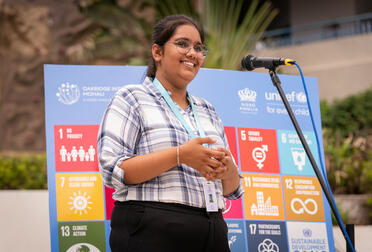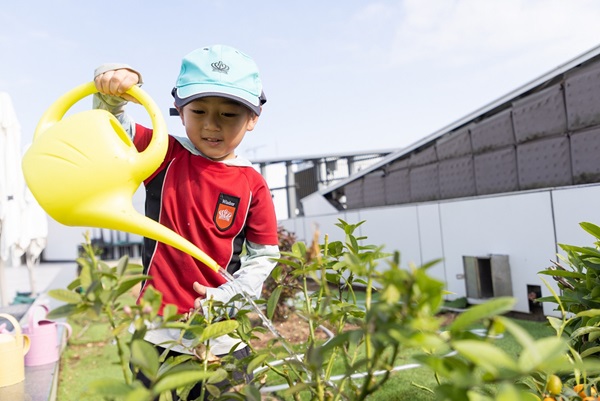We use cookies to improve your online experiences. To learn more and choose your cookies options, please refer to our cookie policy.

Leading international schools provider Nord Anglia Education has created a Social Impact Distinction programme with support from UNICEF UK* recognising schools’ social impact efforts related to equality, diversity, inclusion and belonging (EDIB).
Schools work towards three levels of accreditation: bronze, silver, and gold, showcasing how they have embedded children’s rights and the United Nation’s 17 Sustainable Development Goals into their practice. The Distinctions also further enhance the EDIB and social impact activities schools are already undertaking, while ensuring their impact is accurately measured.
As a framework for how schools can become even better at serving others, the Distinctions recognise the efforts of entire school communities, with educators, students, and parents involved in the process.
The Social Impact Distinctions are just one global initiative where Nord Anglia’s schools work to make a difference to their communities and help students develop their sense of purpose and global citizenship.
Frances Bestley, Director of Programmes at UNICEF UK, said: “We know teaching about children’s rights has a significant impact on a school’s culture, developing it into a place where children’s voices are heard and there’s a shared sense of community and belonging. Children take their right to an education seriously and believe they can change the world for the better. That’s why we've worked with Nord Anglia to develop the Social Impact Distinctions and I’m certain it’s making a difference to children’s lives.”
Hortensia Prieto, General Director of San Roberto International School, currently working towards gold distinction, said: “Completing the work on the Social Impact Distinction goes beyond the traditional boundaries in education and academics. It fosters a culture of empathy, social awareness, and community engagement among students, encouraging them to address pressing social issues actively through projects that tackle real-world problems. As a result, they become well rounded individuals with the skills and mindset to contribute positively to society”.
Ben Turner, Principal at British International School Budapest, also working towards gold, said: “The process of working towards the silver level of the Social Impact Distinction, and the recommendations we received for our work towards gold, ensure we retain a sharp focus on protecting children’s rights and also emphasise the importance of children supporting each other. In our school, this manifests itself in strong student programmes and the commitment our students have to ensure that their peers feel a sense of belonging and that they feel safe in school.”
Dipika Rao, Principal of Oakridge International School Gachibowli, also working towards gold, said: “Beyond the confines of the classroom, the Social Impact Distinction challenges students to recognise real-world problems in the community and make the most use of available resources to come up with innovative, sustainable solutions. It’s a chance for community involvement that results in shared accountability and gives students' a deeper understanding of equality and rights so they can create a better future for all. Having received the silver distinction, we’re getting ready to move towards the next level and hope to have a lasting impact on our community.
*UNICEF does not endorse any product, brand, company or service.
